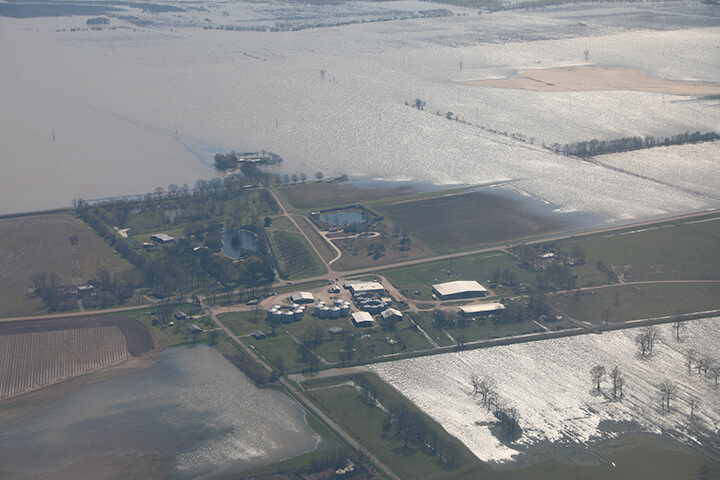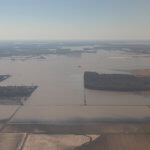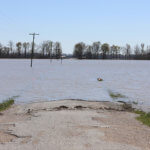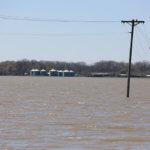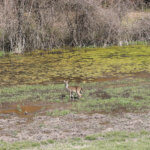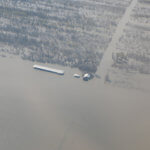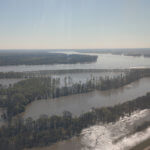On a typical day in March, farmers across Mississippi would be planting crops. But this year, many who farm along the Mississippi River, like Claiborne County Farm Bureau President David Doyle, are waiting for flood waters to recede.
Doyle currently has hundreds of acres under water, and cannot even access his field due to the flowing river water creeping inland.
“It’s a bad feeling when you see all of this,” Doyle said. “When I first started leasing this farm back in ’96, it would flood like one out of seven years. Now, if it doesn’t flood one out of ten years you’re lucky. It’s every year now. Every year.”
Further north in Vicksburg, Warren County Farm Bureau President Mac McKnight’s farm sits off Highway 61. While sand bags are in place as a precaution for the city, McKnight’s land looks more like a lake than farmland.
“This year, the water has gotten hundreds of homes and farmland that didn’t even go under in 1973,” McKnight said. “Folks that have never had water in their houses and shops or over their farmland are experiencing it this year. Unfortunately, it’s just another year for me.”
The total farmland flooded has grown to 500,000 acres and continues to rise, according to the Mississippi Levee Board. Mississippi Farm Bureau Federation President Mike McCormick and his staff recently toured the Mississippi Delta by plane to gain full understanding of the situation.
“This flood is going to have an impact on the farmers and their ability to get their crops in this year,” McCormick said. “It’s going have a huge impact on the towns up and down the Mississippi River and in the Delta.”
Charlie Darden and Karl Holcomb flew the aerial tour for MFBF staff. The tour began on the Louisiana side of the Mississippi River, passed over the steel bayou structure, and flew over Cary, Holly Bluff and Valley Park, showing the massive impact flood is having on farming, wildlife and rural living.
“To actually get in the air and fly over a house that’s sitting with four feet of water in it opens your eyes to the situation,” Holcomb said. “To know that a family lives in that house and has been displaced by these waters is heartbreaking.”
“When you start looking at the economic impact of all of the farm acres not in production, the timber being deteriorated and the wildlife being displaced, it makes you wonder why something hasn’t been done,” he continued.
Unfortunately, flood scenes in counties along the Mississippi River are becoming the norm rather than the exception. With every passing day, water still in the fields means less crops and less income for farmers.
“If I were going to plant a crop in this field this year, I’d have to be able to get them in before the end of June,” Doyle said. “And if this year is anything like in 2011, I probably won’t plant at all. I didn’t plant a crop then. You’ve got to draw the line somewhere.”
“We still make a crop every year,” McKnight said. “But to put it in basic terms, the longer this water stays around, the less time our crops have to grow, the more our salary gets cut. Eventually, it trickles down from us to the consumer. It might take a while, but no matter who you are, it will affect your pocketbook.”

